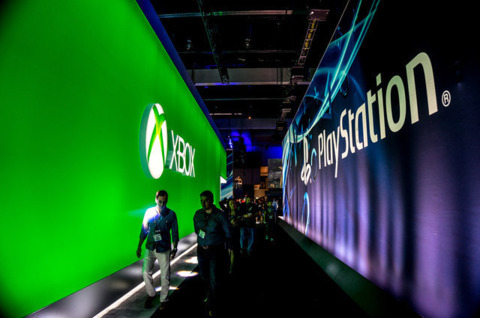Consoles can't match power of PCs, says Nvidia exec
SVP of content and technology Tony Tamasi says "it's no longer possible" for a console to match or exceed graphics capabilities of PC.
Dedicated game consoles can no longer match the power of PCs for performance, Nvidia SVP of content and technology Tony Tamasi told PC PowerPlay in a new interview. 
Tamasi said Nvidia spends about $1.5 billion per year on research and development into graphics, totaling around $10 billion over the course of a console's lifecycle. Platform holders like Microsoft and Sony simply cannot afford to spend that kind of money, Tamasi said.
"It's no longer possible for a console to be a better or more capable graphics platform than the PC," Tamasi said. "I'll tell you why. In the past, certainly with the first PlayStation and PS2, in that era there weren't really good graphics on the PC. Around the time of the PS2 is when 3D really started coming to the PC, but before that time 3D was the domain of Silicon Graphics and other 3D workstations. Sony, Sega, or Nintendo could invest in bringing 3D graphics to a consumer platform. In fact, the PS2 was faster than a PC."
"By the time of the Xbox 360 and PS3, the consoles were on par with the PC," he added. "If you look inside those boxes, they're both powered by graphics technology by AMD or NVIDIA, because by that time all the graphics innovation was being done by PC graphics companies."
The second reason why consoles can't match PC is because "everything is limited by power these days," Tamasi said, noting that faster machines require more efficient design or a bigger power supply.
"The most efficient architectures are from Nvidia and AMD, and you're not going to get anything that is significantly more power efficient in a console, as it's using the same core technology," Tamasi said. "Yet the consoles have power budgets of only 200 or 300 Watts, so they can put them in the living room, using small fans for cooling, yet run quietly and cool. And that's always going to be less capable than a PC, where we spend 250W just on the GPU. There's no way a 200W Xbox is going to be beat a 1000W PC."
Tamasi further explained that in the current market, "nobody can build anything bigger or more powerful than what is in the PC at the moment." He said in theory, an Xbox One or PlayStation 4 could be equal to what is possible on the best PC at the time, but this won't last.
"A year later it's going to be slower, and it still wouldn't be possible due to the power limits," Tamasi said.
Overall, Tamasi said PCs and consoles like the Xbox One and PS4 "look alike these days," pointing out that both next-generation consoles have an x86 CPU and a PC-style GPU. "It's a giant integrated graphics PC," he said.
This is a positive for the gaming landscape overall, Tamasi said. If developers are spending time optimizing for PS4 and Xbox One, then a "good portion" of that research will benefit the PC, because "they're basically doing PC architecture optimization," he said.
"It's good for everyone--the developers don't have all these crazy architectures they have to sort through. 80 percent of their work is now applicable to all platforms," Tamasi said. "It's great for gamers, as games can be better on all platforms. And it's great for PC, as there's less weird divergence between consoles and PC, which means a lot more leverage for devs to raise the bar. If there were technological reasons that games weren't ported to the PC in the past, there are a lot less of those reasons come next-gen."
Got a news tip or want to contact us directly? Email news@gamespot.com
Join the conversation